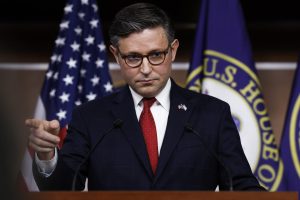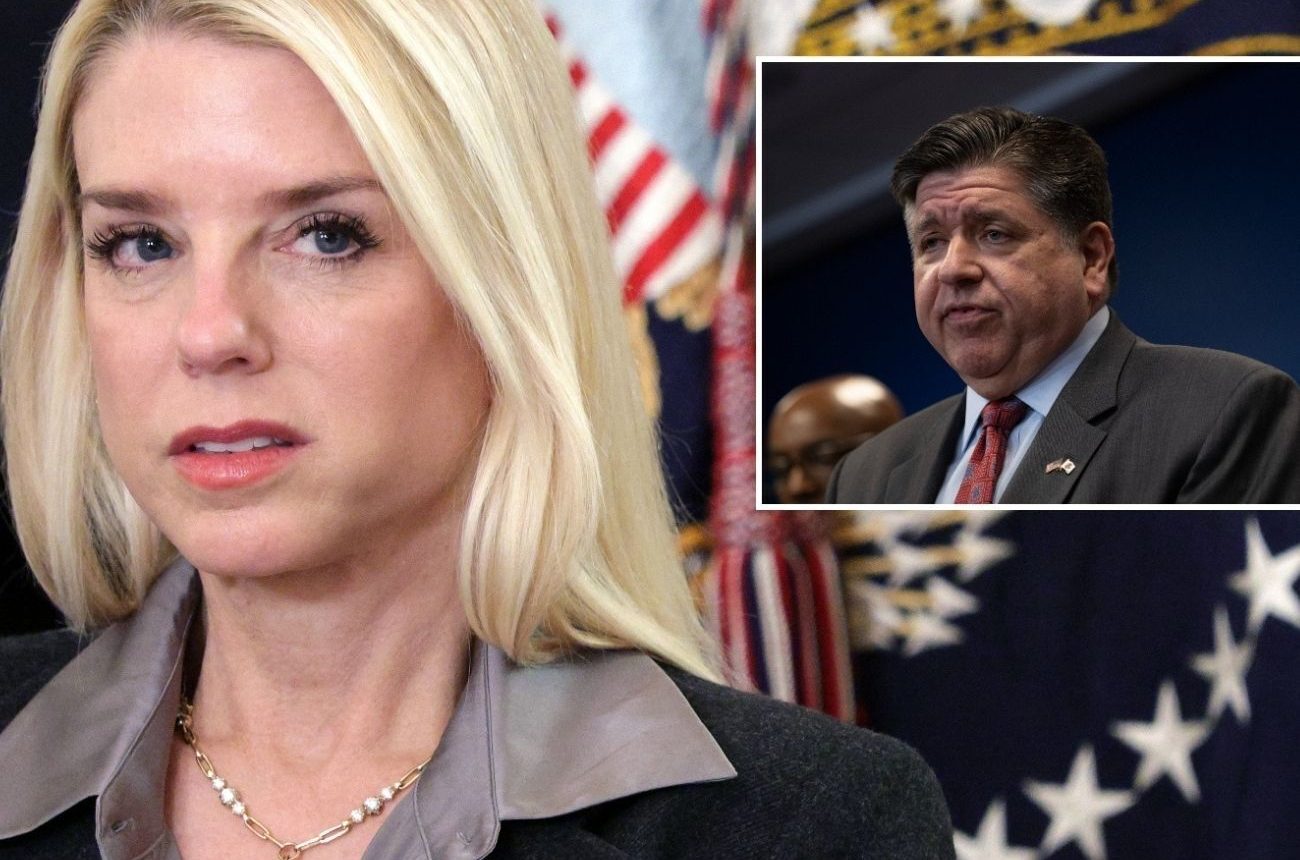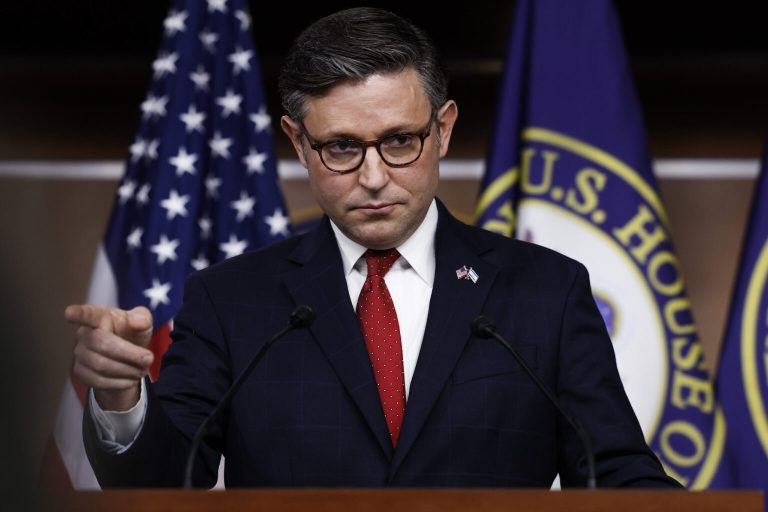White House Official Issues Legal Reminder to State Leaders Over Federal Enforcement Authority
A senior White House official has cautioned state and local leaders that obstructing federal immigration operations could result in serious legal consequences, including criminal prosecution.
Deputy White House Chief of Staff for Policy Stephen Miller issued the warning on Thursday evening during a televised interview, emphasizing that federal law provides broad protections for Immigration and Customs Enforcement (ICE) officers as they carry out their duties nationwide.
The statement followed ongoing disputes between federal authorities and some state governments over immigration enforcement, particularly in states that have implemented sanctuary policies limiting cooperation with federal immigration agencies.
https://twitter.com/EricLDaugh/status/1981818743471976888
Context: Ongoing Tension Between Federal and State Officials
Illinois Governor JB Pritzker has been one of the most vocal proponents of such policies, recently signing an executive order to establish the Illinois Accountability Commission — a body tasked with monitoring federal immigration enforcement actions within the state.
The order, according to the governor, was intended to “ensure transparency and protect the rights of residents,” but it has also reignited debate over the extent to which state governments can intervene in matters of federal law enforcement.
During the Thursday interview, Miller made it clear that any actions by state or local officials that deliberately obstruct federal officers could trigger legal consequences.
“It doesn’t only apply to Gov. Pritzker,” Miller said. “It applies to any state or local official who engages in conduct that unlawfully interferes with federal officers performing their lawful duties.”
https://twitter.com/greg_price11/status/1981490085120946243
Potential Legal Implications for Interference
Miller outlined several potential federal offenses that could arise from such actions, including obstruction of justice, conspiracy against the United States, and impeding federal officers.
Under federal statutes, ICE officers and other federal agents are protected by sovereign immunity when performing duties authorized by law. This means that local or state officials who attempt to detain, block, or otherwise interfere with their activities may violate federal law.
As Miller explained:
“If an official orders their police department or other agencies to obstruct ICE operations or attempt to arrest federal agents, that could constitute criminal behavior under existing statutes.”
He added that depending on the severity of the conduct, those involved could potentially face charges under laws addressing seditious conspiracy, a federal offense carrying penalties of up to 20 years in prison.
Defining ‘Seditious Conspiracy’ in Legal Terms
The term “seditious conspiracy” refers to an agreement between two or more persons to use force to oppose or hinder the execution of U.S. laws or to seize federal authority unlawfully. While rarely applied, it has been used in cases involving coordinated efforts to resist federal jurisdiction.
Legal analysts note that while such charges are seldom brought against public officials, the warning serves as a clear signal that the administration intends to enforce federal supremacy in immigration matters.
“The legal message here is not about politics; it’s about jurisdiction,” said Dr. Linda Kessler, a constitutional law professor at the University of Chicago. “Immigration enforcement is an explicitly federal responsibility, and the Department of Justice has wide latitude to act when local governments interfere.”
Illinois’ Stance on Immigration Enforcement
Governor Pritzker has long positioned Illinois as a “welcoming state” for immigrants, emphasizing humanitarian and civil rights concerns. His administration’s policies include restrictions on local law enforcement cooperation with ICE and efforts to shield undocumented residents from deportation in certain situations.
In recent weeks, Pritzker has criticized federal immigration raids and claimed that aggressive enforcement tactics create fear among communities. In one televised appearance, he argued that such operations risk “racial profiling” and erode public trust.
However, critics contend that these restrictions have complicated cooperation between local and federal agencies, particularly when it comes to identifying and detaining individuals accused of serious crimes.
Federal and State Powers: A Legal Balancing Act
The U.S. Constitution’s Supremacy Clause establishes that federal law overrides conflicting state or local regulations. Federal immigration authority derives primarily from congressional statutes, granting agencies like ICE and Customs and Border Protection (CBP) jurisdiction to enforce immigration laws nationwide.
However, states retain broad control over their own law enforcement operations. This has led to years of tension and litigation over where federal authority ends and state discretion begins.
Legal experts suggest that while states cannot directly obstruct federal officers, they can limit their own agencies’ involvement in federal operations — a practice often referred to as “non-cooperation.”
“Federalism allows for a degree of autonomy, but not obstruction,” explained constitutional attorney Robert Dunne. “The line between the two is often the source of political and legal controversy.”
The Broader Political Implications
Miller’s comments reflect a broader national debate over immigration policy and the relationship between the federal government and states that oppose certain enforcement measures.
Sanctuary policies have been adopted in multiple jurisdictions across the country, including New York, California, and Illinois. Supporters argue that such policies encourage cooperation between immigrant communities and local police, while critics claim they allow individuals who violate federal immigration laws to avoid accountability.
The issue remains a major point of contention between federal authorities and state governments that have declared themselves sanctuary jurisdictions.
Statements From Both Sides
Following Miller’s televised remarks, representatives from the Illinois governor’s office defended their approach to immigration oversight, stating that state policy aims to “protect vulnerable residents” and ensure “constitutional accountability.”
“We will continue to prioritize safety and fairness for all residents, regardless of status,” said a spokesperson for Pritzker’s office. “Our actions are consistent with the rule of law and with the rights of Illinois communities.”
At the federal level, White House officials reiterated that their objective is to maintain lawful order and uphold existing statutes. “Federal law enforcement officers are carrying out their duties as prescribed by law,” said a senior DOJ spokesperson. “Any threats or attempts to obstruct their work will be taken seriously.”
Looking Ahead: What Could Happen Next
While the warning does not necessarily indicate an imminent prosecution, it represents a strong assertion of federal authority in a long-running jurisdictional conflict.
Analysts believe the situation could test the limits of federal enforcement power and state autonomy in immigration matters, particularly if Illinois continues to expand its oversight of ICE operations.
Legal observers expect further debate over whether states can legally track or review federal enforcement actions within their borders. “This is an evolving area of law,” said Professor Kessler. “We’re likely to see continued litigation and negotiation before there’s clarity.”
For now, the White House has emphasized that the focus remains on ensuring federal officers can safely and effectively carry out their missions without obstruction.
As Miller summarized during his interview:
“Our message is simple — follow the law. Federal officers have a job to do, and no one should interfere with that.”

Emily Johnson is a critically acclaimed essayist and novelist known for her thought-provoking works centered on feminism, women’s rights, and modern relationships. Born and raised in Portland, Oregon, Emily grew up with a deep love of books, often spending her afternoons at her local library. She went on to study literature and gender studies at UCLA, where she became deeply involved in activism and began publishing essays in campus journals. Her debut essay collection, Voices Unbound, struck a chord with readers nationwide for its fearless exploration of gender dynamics, identity, and the challenges faced by women in contemporary society. Emily later transitioned into fiction, writing novels that balance compelling storytelling with social commentary. Her protagonists are often strong, multidimensional women navigating love, ambition, and the struggles of everyday life, making her a favorite among readers who crave authentic, relatable narratives. Critics praise her ability to merge personal intimacy with universal themes. Off the page, Emily is an advocate for women in publishing, leading workshops that encourage young female writers to embrace their voices. She lives in Seattle with her partner and two rescue cats, where she continues to write, teach, and inspire a new generation of storytellers.









